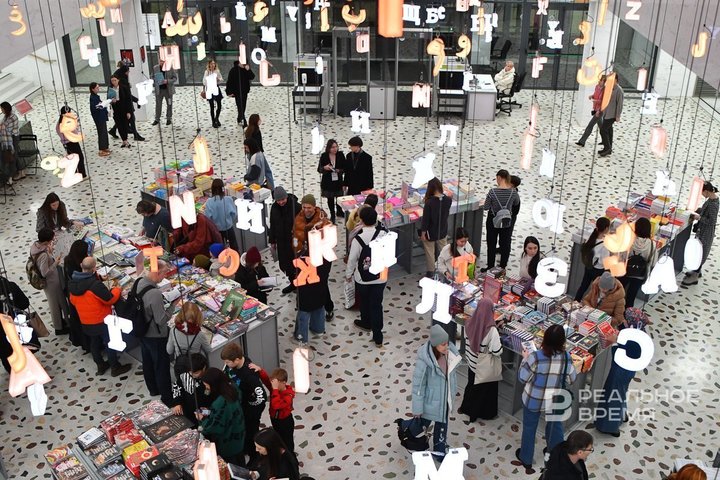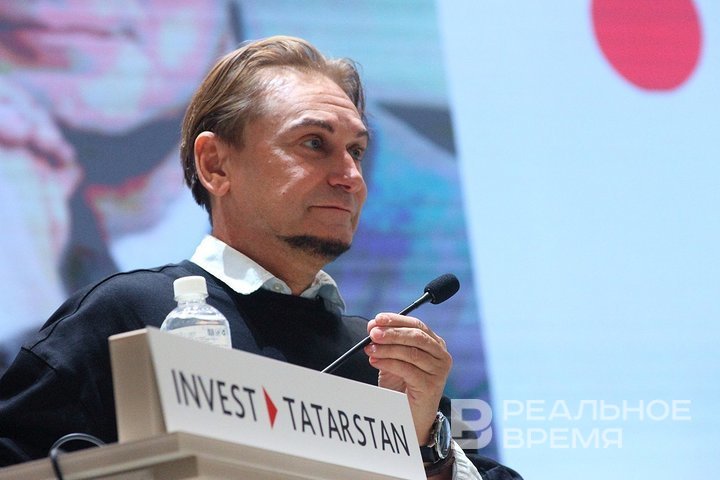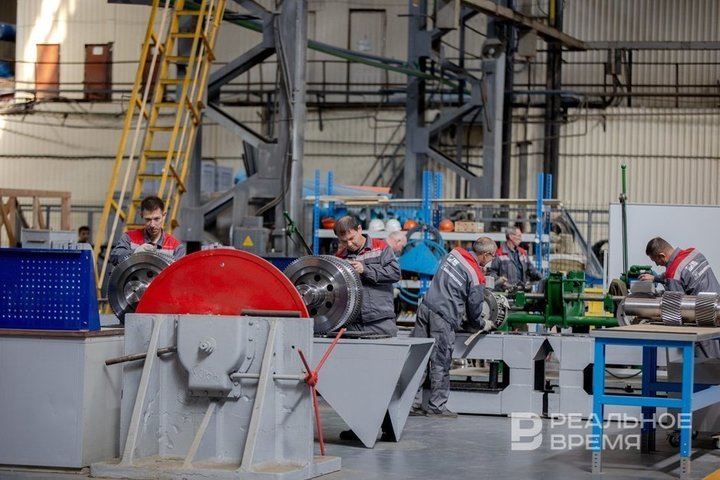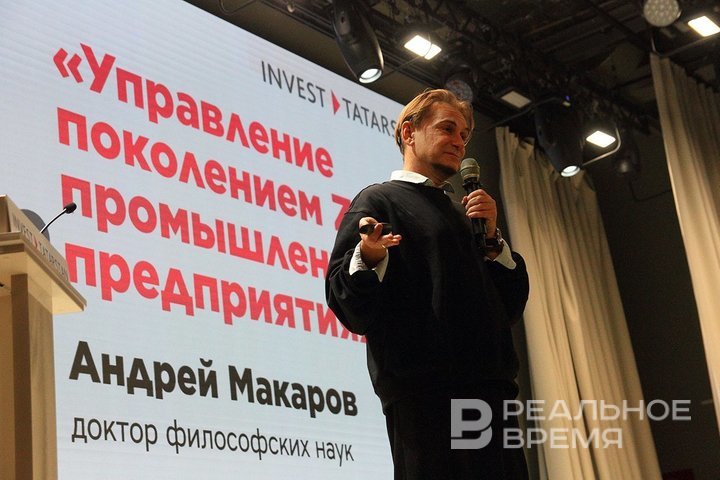‘Generation Z is like raw bricks’: why Zoomers don't go to factory floor
Manufacturers, during the lecture “Managing Generation Z at Industrial Enterprises”, proposed limiting internet access for Gen Z workers

Generation Z, born between 1997 and 2012, grew up in an era of cultural events — the Internet, social networks, a smartphone and absolute consumer well-being. Young specialists, living in both the real and virtual worlds, are sensitive to criticism and quick to change jobs in search of recognition for their ideas and higher salaries — this is how cultural theorist and Doctor of Philosophy Andrey Makarov described the profile of Gen Z during the lecture at the National Library of Tatarstan. He had to counter the manufacturers' suggestion to impose censorship and restrict access to “websites of questionable content”. “Generation Z is not the burnt bricks from which the framework of the economy of the past was built," he warned. Read the details in the material of Realnoe Vremya.
Digital Age Zoomers
Employers are experiencing great difficulties in attracting young people belonging to Generation Z to manufacturing enterprises. But the problem lies in their poor understanding (perception) of what a factory and its environment are, rather than in the enterprise itself. The experts reached this conclusion during an open lecture on the topic “Managing Generation Z in Industrial Enterprises”.

Andrey Makorov, a renowned cultural scholar and professor at Volgograd State University, in his speech, attempted to explain to representatives of manufacturing companies and the business community why it is impossible to negotiate with Generation Z in the same way as with their millennial parents. And there is no need to look for roots in the eternal conflict of “fathers and children”, which divided different generations of the Soviet era. Children born between 1997 and 2012 grew up in the digital era, so their “genetic code” is digital privacy. It is easier for them to communicate in messengers than live, it is more comfortable for them to work remotely than operate a lathe, and in life they build a demarcation line between their personal life and work, said Andrey Makarov. In this, they are the exact opposite of their parents, who gave most of their lives to their profession.
“If you put a period in the message, a Gen Z will perceive it as aggression. And an unexpected phone call is seen as an invasion of personal life," he added.
“Insensitive romantics” from two worlds
Why are Zoomers so different from their parents?
“There is no hunger in society, there is something to wear and something to eat. Young people have grown up in conditions of consumer well-being. They are not particularly interested in career and money, and many believe they should be paid just for “being here and being beautiful," explained Andrey Makrov with a hint of sarcasm.
It would seem naive, but in some ways they may be right, the lecturer objected to himself. What is the rationality of their logic? “Zoomers are the mortgage generation. But what will they buy with a pay raise when they get a raise? New jeans? Perfume? Unlike their parents, Zoomers adhere to minimalism in consumption," concluded Andrey Makarov.

On the other hand, the easy attitude to life is explained by the fact that their parents support them, Makarov said: “It seems to me that parents are more energetic and optimistic, while Generation Z suffers from depression and neuroses. I call them “insensitive romantics” who live in two worlds — the real and the virtual.”
According to him, any critical remark at work can cause them to have panic attacks, up to nausea. So, the slides claimed that cancelling a taxi in the app could cause mild depression in a guy. At the same time, his parents bravely accepted difficulties, bravely risking for the sake of earning money.
How to attract a Gen Z to a lathe
A study among Kazan youth showed that Zoomers are ready to go to the factory for several reasons. Firstly, money, that is, if they pay more than the average in the city, for example, 80,000-100,000 rubles. Secondly, if in childhood he was instilled with an interest in technical specialties by his parents or grandparents. Thirdly, if they are passionate about the popular show Galileo. Fourth, if they have the opportunity to work in a top-level Russian company and create a real product.
According to Andrey Makarov, it is important for Zoomers to create a useful and necessary product, not to imitate activities. “It is important for them to realise that the result of his work has been beneficial, and to receive recognition from the leadership," he said. And this is a positive feature of Generation Z. If young professionals do not receive a feedback, they quickly change jobs, regardless of earnings. According to him, there are cases when young job seekers do not return from lunch on the first working day, as they find themselves disappointed in the business environment.

Selectivity is the main feature of Zoomers in employment. When choosing a job, Generation Z aims to grow into an exceptional and unique specialist in order to earn more with minimal effort. In the business sphere, they avoid direct conflicts, preferring not to discuss issues with their superiors, but to leave at the first opportunity. At the same time, the culturologist highlighted their desire to be useful in society and their willingness to selflessly help those in need. Of course, the generation has an excellent command of digital tools.
“SVO is ongoing, while creative people lock themselves alone with the Internet”
“To put it mildly, Generation Z is like raw bricks. And if they are raw, then the state may not be able to resist. What do you think awaits us?” a 50-year-old personable man and a father of three children began the controversy.
Judging by the nature of the question, he works at a Kazan enterprise and is concerned that young people do not go to work in factories or volunteer at the front. “The SVO is underway, but creative people lock themselves in their rooms alone with the Internet and cannot defend the state. What should we do now? Will the building of the state withstand?” the man worried.
“I think that the brick building [of the state] will withstand, you just need to look at the architecture of the state itself in a different way," Professor Andrey Makarov wisely reasoned in response.
In his opinion, it is necessary to stop identifying people with “bricks”.

“Brick is something formatted, solid and well-baked building material. It is stacked in rows, but you cannot create a flexible layout with them. But there are other building materials, such as plastic, which has internal flexibility and mobility. I think that the Lord God does not have a manager who puts bricks in rows," the culturologist replied sharply, making it clear that people choose their own lives, and therefore their jobs.
The father of three children continued the controversy. According to him, a new generation with such a philosophy of life is unlikely to be able to feed their parents, so he offered to take them into “iron gloves”. “I would limit access to bad resources on the Internet," he said. “Of course, I am against the closure of the Internet in the country, but we need to introduce some censorship for young people. Especially to “sites of easy virtue," he insisted.
According to him, young people need to be inspired with a sense of patriotism for the country, and the institute of mentoring should be introduced in factories.
“Everyone knows what young people need, but no one knows how to do it," Andrey Makarov replied philosophically. “Generation Z is not the burnt bricks that were used to build the framework of the economy of the past," he warned.